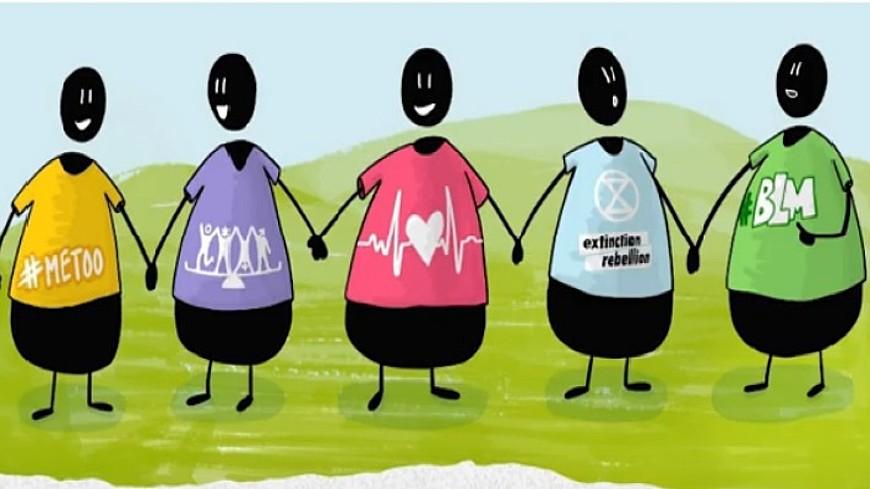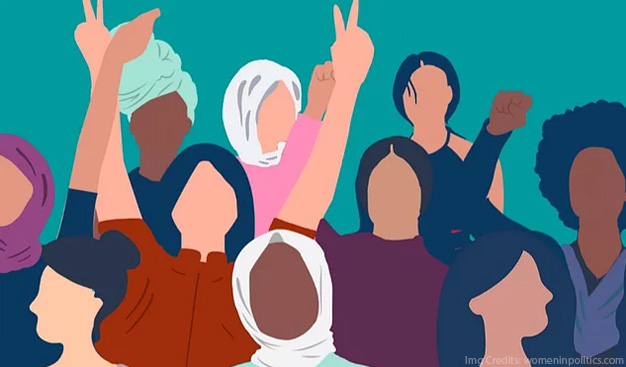Dear Beamers,
Greetings! As part of our dedication to delivering thorough insights and updates, we are pleased to provide you with a comprehensive examination of the influence of social media on political engagement within the context of Nigeria.
The adoption of mobile technology in Nigeria is widely considered to be among the highest across African nations. There has been a discernible and consistent decrease in the proportion of individuals acquiring news through traditional media channels in recent years, with a notable shift towards direct consumption of news via websites or social media platforms.
The younger generations exhibit a notably higher inclination towards utilizing social media for news consumption, be it through online video platforms, social networking platforms, or instant messaging apps. The pervasive adoption of social media platforms has profoundly altered the dynamics of communication, information dissemination, and societal engagement for individuals, shaping their interactions with the global landscape.
The unparalleled level of connectivity facilitated by social media has yielded profound implications across multiple societal domains, with politics notably affected. These platforms offer a readily accessible and convenient avenue for individuals to actively participate in political discourse, express their viewpoints, and organize collective action around common interests and causes.
Social media presents numerous opportunities to broaden civic engagement, foster public discussions, and enhance information accessibility for citizens. These opportunities hold particular significance in light of the escalating crackdown on political activities within physical spaces witnessed in Nigeria.
“Citizens increasingly turn to social media and online platforms for political engagement due to their ability to promote public accountability and provide unfettered access to objective information concerning vital social, economic, and political issues affecting Nigerian communities. In expressing their views and utilizing appropriate hashtags, citizens can quickly disseminate information and raise awareness about specific events and concerns, reaching a wide audience. This engagements usually shed light on governmental inadequacies, compelling authorities to address public grievances.” Says Bori Isaac
The accessibility of these platforms, coupled with flexible data bundles provided by service providers, has facilitated the dissemination of political information and the mobilization of movements. Individuals across all socioeconomic strata now actively participate in online political talks. Young people predominantly utilize social media platforms as a vehicle for self-expression, staying informed about political developments, and offering commentary on current affairs with a notable degree of awareness and analytical insight, often employing both formal and humorous tones.

In Nigeria, the utilization of social media as a news source has surpassed that of print newspapers in recent years, with individuals increasingly relying on digital devices to stay updated on current trends across various industries. While news websites, apps, and search engines remain dominant sources of information for the general populace, social media emerges as one of the primary avenues for news consumption among the youth demographic. Consequently, social media has garnered significant attention from scholars and practitioners alike, being recognized as a rapidly expanding medium for news distribution and consumption.
The debate over whether media usage yields positive or negative political outcomes has persisted for some time; however, ultimately, it is the content that shapes political participation in the long term. The type of content consumed, whether through traditional or digital media channels, demonstrates a direct correlation with political knowledge and engagement.
The efficacy of social media as a communication and organizational tool has become evident to the extent that certain authoritarian leaders express apprehension towards its influence. In Nigeria, the utilization of social media has empowered citizens to connect with global communities, mobilize for social and political causes, and actively engage in activism. Furthermore, it provides avenues for discreet commentary, including the use of disarming memes, enabling users to challenge authoritarian governance.
In 1999, Nigeria transitioned to party politics following four decades of military rule, culminating in the nation’s seventh consecutive democratic elections in 2023. The 2023 election witnessed a distinct shift in political discourse on social media, with a significant number of individuals expressing frustration over various challenges the nation has faced, including lack of government transparency, security concerns, rising living costs, and perceived failures by political leaders to fulfill their obligations, among other grievances.
Political discourse on social media had been ongoing for several years prior to the most recent presidential election. During that time, there was a prevailing belief that online activity did not necessarily translate into tangible real-world change. However, the dynamics witnessed during the campaign leading up to the 2023 election were unprecedented, as Nigerians openly expressed their concerns in every online post. This heightened level of candor can be attributed to the momentum generated by the EndSARS protest of 2020, underscoring the significance of acknowledging the resurgence of activism during that pivotal period.
Amidst the COVID-19 pandemic, certain governments leveraged public health regulations to restrict citizens’ rights to assemble and protest peacefully. However, for the first time in recent memory, several individuals boldly utilized social media platforms to express their discontent with Nigeria’s political affairs. This led to the organization of protests and fundraising efforts to support demonstrators’ needs, all coordinated through social media channels. Subsequently, protests unfolded across all 36 states of Nigeria, including the prominent Federal Capital Territory, Abuja.

According to Ibirongbe Esther’s perspective, the EndSars protest catalyzed the most significant political revolution within Nigeria’s social media sphere. In her statement, she expresses:
“The EndSars protest, in my view, stands as the most significant movement in Nigeria. It instilled fear in the government as we, the people, united across our diversity to demand change. The government underestimated our resolve, but we proved our courage by risking our lives for a peaceful protest. Despite the government’s attempts to silence us by blocking Twitter, we persevered by finding alternative ways to communicate through VPNs, gaining international support from prominent media outlets abroad. Through Twitter alone, Nigerians rattled the government. Though the outcome was not entirely favorable, we demonstrated the power of our collective voice. The government is now wary of facing such united opposition again.”
Despite Nigerians’ expressed preference for a democratic form of government, voter turnout has steadily declined with each election. This trend may stem from the disillusionment arising from the stark disparity between the ideals of democracy, as described by Abraham Lincoln, and the actual reality experienced. Nonetheless, a prevailing sentiment among voters, particularly young ones, is a lack of trust in Nigeria’s electoral system. This mistrust is primarily fueled by the perceived inadequacy of transparency within Nigeria’s sole electoral body, known as INEC.
Ajasa Habeed contends that the political apathy exhibited by numerous Nigerians, both in offline and online spheres preceding elections, can be attributed to the advanced age of certain political aspirants. In his statement, he asserts:
“In leadership, both experience and age hold significant importance. We cannot ignore the impact of age-related factors on the clarity of communication and physical vitality observed in some leaders. Many online voices advocating for change in Nigeria emphasize the necessity of having a leader who is not only mentally sharp but also physically fit to govern. Without such leadership qualities, voter turnout is likely to remain subdued.”
The manifestation of low voter turnout underscores a prevalent sense of political disengagement, revealing a gap in the realization of social media’s capacity for facilitating political participation. An enduring challenge that remains inadequately addressed by social media is the conversion of crucial awareness and engagement into substantive influence over public policy and meaningful participation within political frameworks and processes.
In addition to vocalizing their concerns, it is imperative for young individuals to actively engage in politics at the party level to effectively enact the changes they aspire to see. It is a moment that calls for less talk and more proactive involvement, despite facing various challenges and uncertainties, as collective action by individuals across diverse backgrounds is pivotal in shaping the destiny of our nation.

The objective of political activism on social media should be to encourage individuals to emulate such political behaviors, thereby fostering increased offline political engagement across a broader spectrum of the populace. This approach may also cultivate interest and establish the groundwork for offline political participation, encompassing activities such as organizing, campaigning, and voting in elections. Merely engaging in political dialogues online is insufficient to achieve the democratic change and reform that is earnestly sought.
According to Gladys Okoh, a member of NNPP (New Nigeria People’s Party),
“To truly harness the full potential of social media in politics, especially for the youth, it’s essential to complement online efforts with physical action. This entails actively participating in political parties, engaging in grassroots community initiatives, fostering organization within youth networks, and advocating for change by directly lobbying political leaders. Only through such engagement can meaningful change be realized.”
Youth activists and civil society stakeholders should endeavor to formulate strategies and mechanisms that facilitate the translation of online political activism and engagement into tangible participation in politics and influence over public affairs. As activists and concerned citizens, our responsibility lies in harnessing the potential of online platforms to promote political engagement. Only through collaborative action can we strengthen democratic processes and enact substantive positive transformations.
Social media serves as a valuable tool for mobilizing movements and facilitating information sharing. However, to instigate and sustain tangible change, further action is essential. Activists should actively leverage these platforms to cultivate grassroots movements, forge alliances, coordinate real-world collective actions, and establish formal structures capable of engaging with authorities to drive lasting political and societal change.
The proliferation of social media is reshaping Nigeria’s political terrain. As the affordability of various brands of mobile phones increases, there has been a notable surge in the number of individuals registering and actively participating on multiple social media platforms. Given Nigeria’s status as the most populous nation in Africa and one of the most culturally diverse countries globally, the social media sphere has become a privileged space for encountering diverse viewpoints and political perspectives from a wide spectrum of Nigerians.
While commendable strides have been made in our online sphere, it’s time to translate our digital activism into tangible action in the real world where politics is enacted. To shape Nigeria into the nation we envision, we must move beyond virtual expressions and embrace physical engagement by exercising our right to vote and actively participating in political processes.




